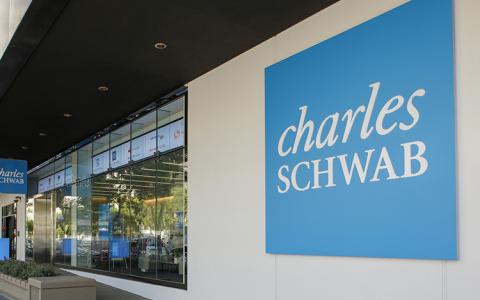
Every year, Schwab Advisor Services asks over 1,000 RIAs to share granular business details and reveal what they are focused on improving. Then the custodian evaluates all the responses and makes suggestions to the field. Had some RIAs taken Schwab’s advice, they would have fared better during the market downturn.
At the start of 2020, like in years past, business growth was a clear strategic priority at RIAs; 42% of RIAs said they were focused on acquiring new clients through “client referrals” and 26% through “business referrals,” according to Schwab’s 2020 RIA Benchmarking study published Tuesday. Those objectives also ranked first and second, respectively, in 2019.
Overall, RIAs have been growing. They entered 2020 after years of “enviable results for any industry,” Lisa Salvi, vice president of Business Consulting and Education at Schwab Advisor Services, said during a presentation of the survey on Tuesday. From 2015 to 2019, median assets under management at RIAs managing at least $250 million grew from $424 million to $761 million, a compound annual growth rate (CAGR) of 9.2%. As a result, median revenue grew from $2.86 million to $4.23 million over the same period, a CAGR of 7.3%.
Schwab defines several ranges of assets under management — from $100 million to $250 million, up to those with over $2.5 billion — and RIAs of all sizes have grown by a CAGR of at least 7.3% over the last five years, too.
But not all growth is equal. Despite their fixation on getting more clients, many RIAs have still not taken important steps to improve their company and their organic growth rate, a critical business metric, according to the benchmarking study. As a result, those RIAs did not fare as well as they could have during the market downturn caused by the Covid-19 pandemic this spring.
In 2018, the median operating profit margin for RIAs managing between $100 million and $250 million was 28.9%, net compensation costs. For those operating with thinner margins, a severe downturn (revenue at RIAs typically falls two thirds of the broader market’s decline) can force businesses to make changes and that happened this spring.
In April, cash-crunched RIAs began haggling with consultants on fees and sought relief for clients and themselves through the Payroll Protection Program (PPP). At least 1,436 investment advisory firms applied for and accepted PPP loans, according to the Small Business Administration. (Although, evidence suggests that number could be off base.)
RIAs can’t control the markets. But a good organic growth rate helps smooth market volatility’s impact on revenue and many RIAs can do some things to boost that, according to Schwab's study.
Two steps RIAs can make toward better organic growth is to define and document an ideal client persona and client value proposition, which help create a more meaningful client experience. That means more referrals and a better focus on the right prospective clients. In 2019, firms that did both attracted 28% more clients and 45% more client assets.
“I would like every single firm to have those articulated because I think it makes a really big difference in the trajectory of their business,” Salvi told RIA Intel.
However, a lot of RIAs don’t articulate them. Among firms managing less than $250 million, only 50% have documented an ideal client persona or profile and just 55% has a client value proposition. Firms managing more than $250 million were slightly better, at 60% and 66%, respectively.
Schwab Advisor Services has three existing programs for its RIAs focused on helping them improve their organic growth. Perhaps the 2020 market will move more advisors to leverage those programs, or at least create an ideal client persona and value proposition.
Then again, maybe it won’t. For years, despite custodians, consultants, and others raising awareness about succession planning little more than half of RIAs have a written one. In last year’s benchmarking study, just 13% of RIAs said developing or enhancing a succession plan was a top-three priority, making it the least favorable.
But Salvi is positive about RIAs in general. They quickly adapted their operations in response to the pandemic, and periods of market volatility and uncertainty have helped the RIA channel grow in the past. “I think advisors have really done a good job navigating through this trying time.”
This article originally appeared on RIAIntel.



